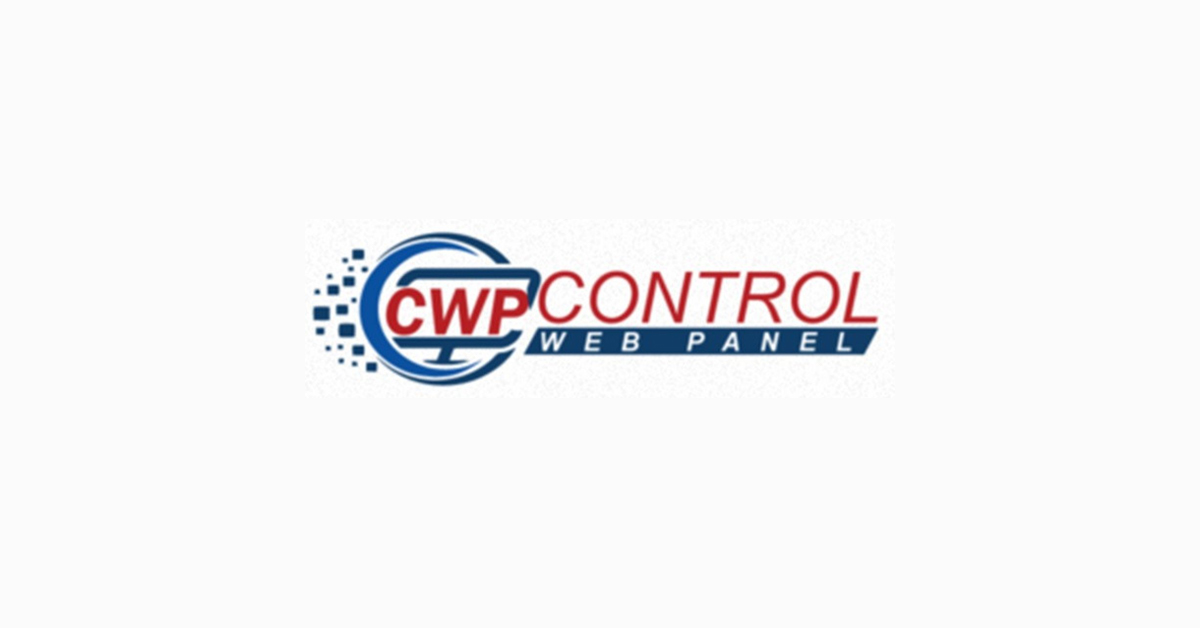Control Web Panel (CWP): Features, Advantages, and Modern-Day Practical Uses
Everything You Need to Know About Control Web Panel (CWP)
Control Web Panel (CWP) is a powerful, free, and open-source web hosting control panel designed for managing Linux servers. CWP simplifies the complex task of server administration by providing an intuitive interface, making it a popular alternative to paid control panels like cPanel, Plesk, and DirectAdmin. In this article, we will explore the key features, advantages, and practical uses of CWP in modern web hosting environments.
What is Control Web Panel (CWP)?
Control Web Panel (CWP), formerly known as CentOS Web Panel, is a comprehensive control panel developed to simplify server management tasks. CWP is specifically tailored for Linux-based servers and supports distributions such as CentOS, AlmaLinux, Rocky Linux, and Ubuntu. Its main goal is to reduce the complexity of managing server tasks while providing a robust environment for hosting websites, managing domains, and handling email accounts.
CWP is designed to meet the needs of both beginners and advanced users, offering a graphical interface that allows users to perform tasks that would normally require command-line input. Whether you’re hosting personal websites, e-commerce platforms, or corporate portals, CWP offers an all-in-one solution for efficient server management.
Key Features of Control Web Panel (CWP)
1. User-Friendly Dashboard
CWP provides an easy-to-navigate interface, making it simple for both beginners and experienced users to manage their servers. The dashboard includes tools for managing domains, databases, email accounts, and file systems. The interface is customizable, allowing users to configure the panel based on their preferences and needs.
2. Automated LAMP/LEMP Stack Setup
CWP automates the installation of LAMP (Linux, Apache, MySQL, PHP) and LEMP (Linux, Nginx, MySQL, PHP) stacks, which are crucial for running dynamic websites and applications. This feature reduces the time and effort needed to configure servers manually, allowing users to deploy websites in just a few clicks.
3. Domain and Subdomain Management
CWP simplifies domain and subdomain management. Users can add and configure multiple domains and subdomains from a single interface. This is particularly beneficial for businesses that need to manage various websites or sections of their online presence.
4. MySQL and MariaDB Management
Database management is a critical aspect of web hosting, and CWP offers integrated support for managing MySQL and MariaDB databases. Users can create, modify, and delete databases with ease, and the panel includes phpMyAdmin for advanced database operations.
5. Email Account Management
CWP includes a robust email management system, allowing users to create and manage email accounts, aliases, forwarders, and autoresponders. The panel supports secure email protocols like SMTP, IMAP, and POP3, enabling businesses to set up professional email services with ease.
6. Security Features
Security is a top priority for CWP. The panel includes features like built-in firewall management, brute-force attack protection, and IP blocking. It also allows users to easily install SSL certificates for secure data transmission. These security features help protect websites and servers from malicious threats and unauthorized access.
7. Backup and Restore Capabilities
CWP offers automated backup solutions, ensuring that users can easily create backups of their websites, databases, and server configurations. In the event of data loss or a security breach, CWP’s restore features make it easy to recover essential files and settings.
8. File Management
CWP includes a web-based file manager that allows users to upload, edit, and manage server files. The panel also provides FTP (File Transfer Protocol) access for users who prefer working with external file management tools. These options ensure that both novice and advanced users can easily manage their server files.
9. One-Click Application Installer
For users who want to install content management systems (CMS) like WordPress, Joomla, or Drupal, CWP provides a one-click installer. This feature allows users to deploy web applications quickly without needing to manually configure server settings or databases.
10. Monitoring and Resource Management
CWP provides detailed server monitoring tools, allowing users to track CPU, memory, and bandwidth usage. The panel includes real-time graphs and performance indicators, helping administrators identify potential issues before they affect website performance.
Advantages of Control Web Panel (CWP)
1. Cost-Effective Solution
One of the main advantages of CWP is its cost-effectiveness. As a free and open-source control panel, CWP eliminates the need for paid licenses or subscriptions. This makes it an ideal choice for everyone.
2. Full Control Over Server
CWP provides users with full control over their Linux servers, offering a range of customization options. Users can configure software, install applications, and fine-tune server settings according to their specific requirements.
3. Time-Saving Automation
CWP automates many server management tasks, such as installing software, managing backups, and setting up security features. This automation saves users significant time and effort, especially when managing multiple websites or applications.
4. Strong Security Features
CWP includes advanced security features, such as firewalls, brute-force attack prevention, and SSL certificate management. These features ensure that websites and servers are protected from cyberattacks, data breaches, and unauthorized access.
5. Scalability
CWP is designed to be scalable, meaning it can handle websites of all sizes. Whether you’re hosting a small personal blog or a large e-commerce platform, CWP can scale to meet your needs. As your traffic and resource demands grow, you can easily upgrade your hosting plan or server resources without switching control panels.
6. Customization and Flexibility
CWP’s open-source nature makes it highly customizable. Users can modify the control panel to suit their specific needs, whether that involves adding new modules, integrating third-party services, or customizing the user interface.
7. Active Development and Community Support
As an open-source project, CWP benefits from frequent updates and an active community of developers and users. This ensures that the control panel remains up to date with the latest features, security patches, and software enhancements.
Practical Uses of Control Web Panel (CWP) in Modern Times
1. Web Hosting for Small Businesses
CWP is an excellent choice for small businesses that need affordable and reliable web hosting. With its robust feature set, businesses can manage their websites, email accounts, and databases from a single interface, allowing them to focus on growing their online presence.
2. Freelancers and Web Developers
For freelancers and web developers, CWP offers a powerful and flexible platform for managing client websites. Its ease of use, combined with advanced features like database management and email hosting, makes it an ideal choice for hosting multiple client projects.
3. Educational Institutions
CWP is commonly used in educational settings for hosting learning management systems (LMS) such as Moodle. Educational institutions can use CWP to manage student accounts, course content, and secure online learning environments.
4. Personal Blogging and Portfolio Websites
CWP is also popular among individuals looking to host personal blogs, portfolios, or hobby websites. Its cost-effective nature, coupled with easy one-click installation of CMS platforms like WordPress, makes it a convenient solution for personal web hosting.
5. E-Commerce Websites
CWP’s ability to handle dynamic websites makes it suitable for hosting e-commerce platforms such as WooCommerce or Magento. With robust database and security features, e-commerce businesses can rely on CWP to manage product catalogs, customer accounts, and secure transactions.
6. Reseller Hosting
CWP offers tools for creating reseller hosting packages, allowing businesses to sell hosting services to their clients. This is a popular option for agencies or entrepreneurs looking to generate additional income by offering web hosting as a service.
Conclusion
Control Web Panel (CWP) offers a comprehensive, flexible, and cost-effective solution for managing Linux servers. With its user-friendly interface, robust security features, and extensive automation capabilities, CWP simplifies the complex task of server administration while providing full control over web hosting environments. Whether you’re running personal blogs, small business websites, or e-commerce platforms, CWP provides the tools and features needed to manage websites effectively in today’s digital landscape. Its affordability, scalability, and customization options make it a top choice for modern web hosting.



0 thoughts on “Control Web Panel (CWP): Features, Advantages, and Modern-Day Practical Uses”